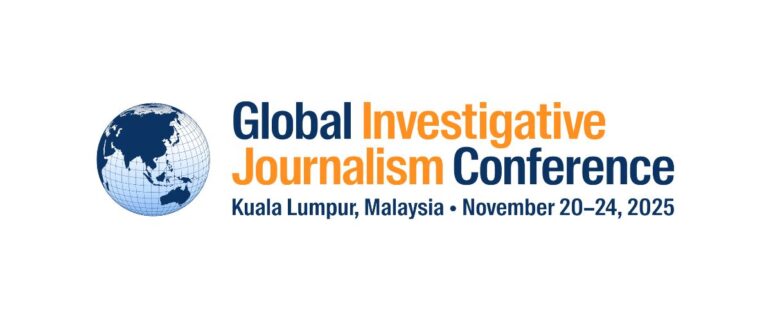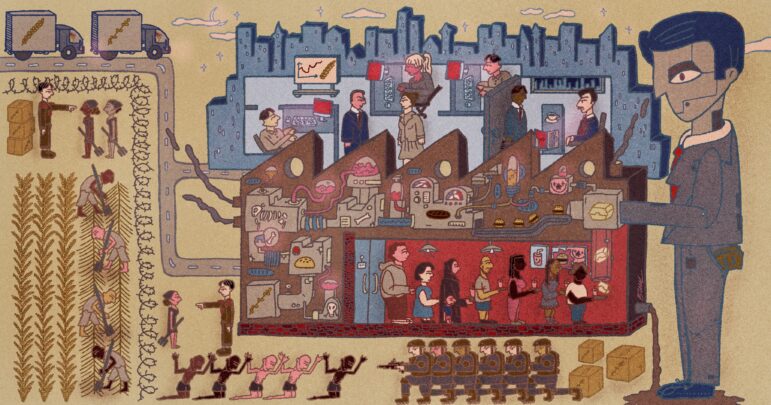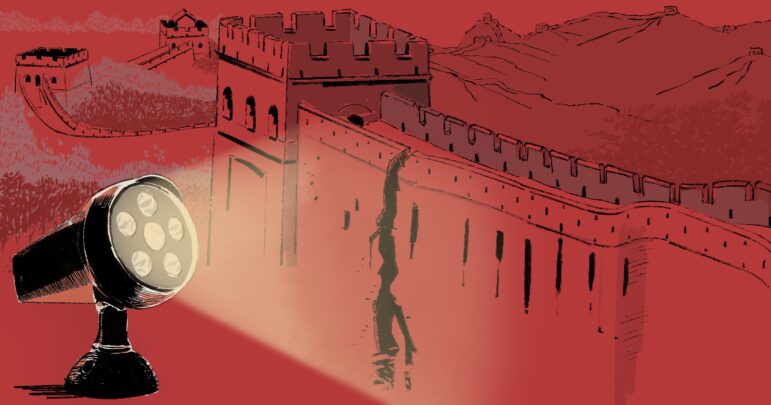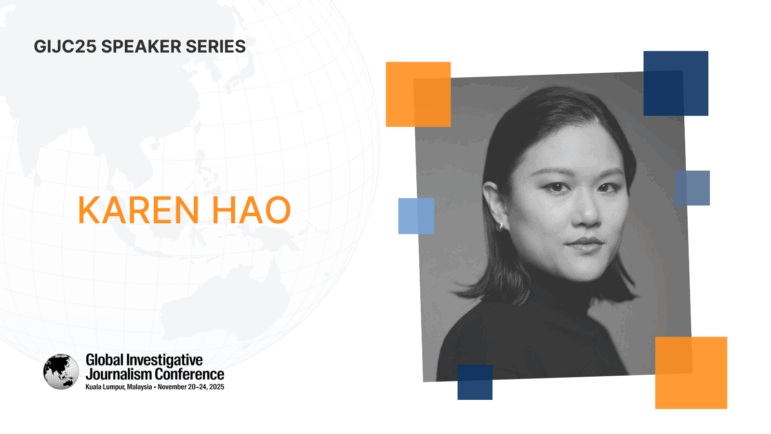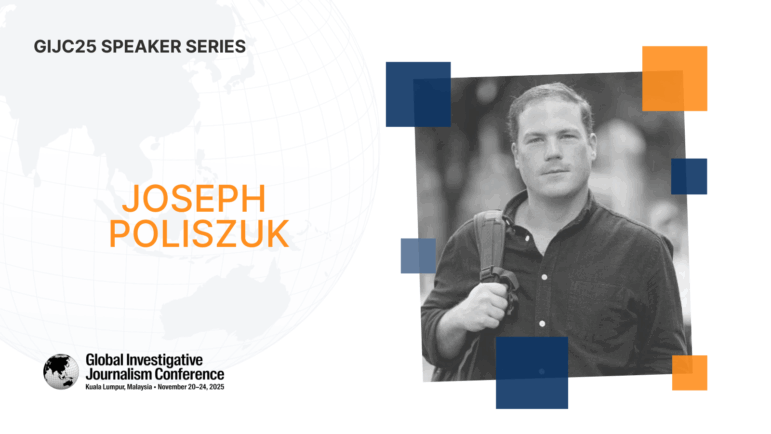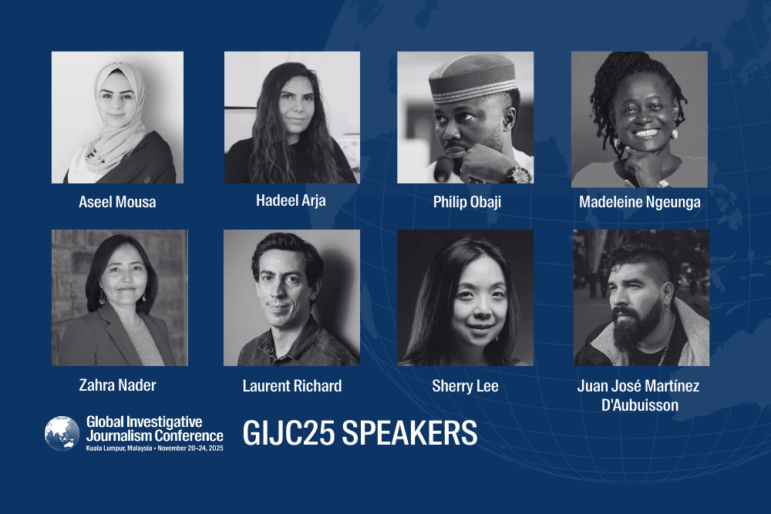

Image: GIJN
‘Journalists Face Criminalization for Their Reporting’: A Tunisian Media Entrepreneur Reflects on the Power of Tools and Lab Testing
Editor’s Note: Ahead of the Global Investigative Journalism Conference in Malaysia, GIJN is publishing a series of short interviews with a globally-representative sample of conference speakers. These are among the more than 300 leading journalists and editors who will be sharing practical investigative tools and insights at the event.
Malek Khadhraoui is publishing director of Inkyfada, a leading independent investigative media outlet in Tunisia and the MENA region, and also serves as executive director of Al Khatt, an NGO he founded to defend press freedom in the region. The former co-leader of Nawaat — a recipient of the RSF Press Freedom Prize in 2011 — Khadhroui’s investigative work dates back to fearless reporting under the dictatorship of former Tunisian president Ben Ali.
In addition to being a member of the International Consortium of Investigative Journalists (ICIJ) and a board member of Reporters Without Borders (RSF), the veteran journalist and media entrepreneur also founded Inkylab, a research and development center that develops investigative tools and multimedia publishing platforms for other media outlets.
Khadhraoui will share his key insights on investigating autocracies in a session on The Authoritarian Shift: Investigating in the Midst of the Decline of Democracy at the 14th Global Investigative Journalism Conference in Malaysia (GIJC25).
GIJN: Of all the investigations you or your team have worked on, which has been your favorite, and why?
Malek Khadhraoui: Every investigative story that we succeed to publish is an achievement. Recently, our investigation into the forced expulsions of migrants at Tunisia’s borders, published with Le Monde and The Washington Post, which combined field reporting, satellite imagery, and testimonies to expose systemic abuses. Generally, working on global collaborative projects and several ICIJ investigations are very challenging and exciting for the newsroom. These experiences highlight the strength of cross-border, collaborative journalism in uncovering stories that no newsroom could tackle alone and also bring a lot of experience and learning for colleagues and newsrooms working in different contexts.
GIJN: What are the biggest challenges for investigative reporting in your region?
MK: The main challenges are political repression, restrictive laws (restricting freedom of press or access to information), and financial fragility. Journalists face criminalization for their reporting, while independent media outlets struggle with sustainability in a shrinking advertising and donor landscape. Digital security threats and smear campaigns also create a climate of fear that may discourage young journalists from investigating sensitive issues.
GIJN: What reporting tool, database, or technique have you found surprisingly useful in your investigations?
MK: Beyond open source intelligence and satellite imagery, we have found laboratory testing to be extremely valuable in verifying claims, for example, in investigations related to environmental issues or food safety. More recently, we have also begun experimenting with artificial intelligence tools to process and analyze large volumes of data, which can provide new insights when combined with traditional investigative techniques.
GIJN: What’s the best advice you’ve received from a peer or journalism conference — and/or what words of advice would you give an aspiring investigative journalist?
MK: The best advice I received is simple: never work alone. Collaboration, whether with colleagues, international networks, or experts, is what makes investigations both stronger and safer. To young journalists, I would say: stay curious, be patient, be humble, and protect your independence. That is your most valuable asset.
GIJN: What topic blindspots or undercovered areas do you see in your region? And which of these are ripe for new investigation?
MK: In North Africa, financial flows, corruption in state-owned enterprises, and environmental issues linked to climate change are still under-reported. Migration crises are often covered superficially, without investigating the networks of complicity between states, militias, and international actors.
GIJN: Can you share a notable mistake you’ve made in an investigation, or a regret, and share what lessons you took away?
MK: In the past, we underestimated the importance of cybersecurity and digital safety when working on sensitive investigations. We also faced strong media backlash after publishing stories on powerful figures, which put our team under intense pressure. These experiences taught me that safeguarding the newsroom technically, psychologically, and strategically, is just as important as gathering the evidence.
GIJN: Can you share an example of the kind of technique or insight you plan to highlight for GIJC25 attendees — or otherwise what you yourself are looking forward to in Malaysia?
MK: I plan to highlight how small newsrooms can build resilience through editorial innovation and collaboration, using both journalistic and technological tools. Personally, I am looking forward to connecting with colleagues to learn how they adapt to repressive environments and develop new strategies for sustainability.
 Rowan Philp is GIJN’s global reporter and impact editor. A former chief reporter for South Africa’s Sunday Times, he has reported on news, politics, corruption, and conflict from more than two dozen countries around the world, and has also served as an assignments editor for newsrooms in the UK, US, and Africa.
Rowan Philp is GIJN’s global reporter and impact editor. A former chief reporter for South Africa’s Sunday Times, he has reported on news, politics, corruption, and conflict from more than two dozen countries around the world, and has also served as an assignments editor for newsrooms in the UK, US, and Africa.

